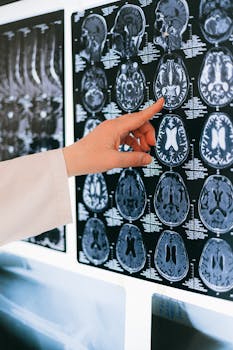Placebos Can Alleviate Chronic Back Pain, Even When Patients Know They’re Placebos
Placebos, often referred to as “sugar pills,” are substances with no active therapeutic effect. They’re used in medical research to test the effectiveness of new treatments by comparing results between a treatment group and a placebo group. Traditionally, placebos are administered without patients knowing they are receiving them.
Chronic back pain (CBP) is a common ailment affecting millions worldwide. It can stem from various causes such as herniated discs, muscle strain, or degenerative disc disease. This persistent pain disrupts daily activities and can lead to significant emotional distress.
Interestingly, recent research has uncovered that placebos can effectively manage CBP even when patients are fully aware they are taking a placebo. This surprising revelation suggests that the power of placebos might lie in more than just deception—it may engage the body’s natural pain-relief processes.
Understanding Chronic Back Pain
Chronic back pain is a widespread issue that affects millions of people worldwide. Common causes include:
- Herniated Discs: When the soft material inside a spinal disc pushes out, it can irritate nearby nerves.
- Muscle Strain: Overuse or injury to muscles and ligaments supporting the spine leads to persistent pain.
- Arthritis and Osteoporosis: Degeneration of the spine’s joints and bones also contributes significantly to chronic back pain.
This condition often severely disrupts daily life. Individuals find it challenging to perform routine activities, maintain employment, or engage in social interactions. The constant discomfort can lead to emotional distress, manifesting as anxiety or depression.
Current treatment options for chronic back pain have notable limitations:
- Medications such as opioids and nonsteroidal anti-inflammatory drugs (NSAIDs) may provide temporary relief but come with risks like addiction and side effects.
- Physical therapy offers benefits but often requires long-term commitment and may not fully alleviate symptoms.
These challenges underscore the need for innovative approaches in managing chronic back pain, hinting at why alternative treatments like open-label placebos are gaining attention.
The Power of Placebos in Pain Management
Understanding the placebo effect begins with recognizing its profound impact on brain activity and pain perception. When a patient believes they are receiving treatment, their brain can trigger responses that mirror those caused by actual medical interventions. This phenomenon is rooted in the brain’s ability to modulate pain signals and release natural painkillers like endorphins.
Traditional vs. Open-Label Placebos
Typically, placebos are given without the patient knowing, creating an expectation of relief that can lead to real physical changes. However, an interesting development in this area is the use of open-label placebos. In these cases, patients are fully aware that they are receiving a placebo, yet studies show these can still yield significant benefits.
Dr. Ted Kaptchuk of Harvard Medical School conducted one such study where patients with irritable bowel syndrome (IBS) were informed they were taking inactive pills. Surprisingly, these patients reported symptom improvements comparable to those seen with standard IBS medications.
Scientific Studies Highlighting Placebo Effectiveness
Research consistently demonstrates that placebos can be effective across various conditions:
- Pain Management: A study published in JAMA Network Open found that chronic back pain sufferers experienced substantial pain relief from saline injection placebos, even when they knew the injections were inactive.
- Depression: Clinical trials reveal that placebos can produce antidepressant effects through mechanisms involving altered brain activity patterns.
- Parkinson’s Disease: Patients have shown improved motor function after receiving placebos due to increased dopamine release in the brain.
These findings suggest that placebos—particularly open-label ones—can play a crucial role in managing chronic pain conditions like back pain. By understanding and harnessing the power of the mind-body connection, healthcare providers might offer new avenues for alleviating suffering, even when traditional treatments fall short.
Study Insights from JAMA Network Open
Key Findings: Pain Intensity Reduction and Mood Improvement through Placebo Treatment
A groundbreaking study published in JAMA Network Open reveals that open-label placebos can significantly alleviate chronic back pain, even when patients are fully aware they are receiving a placebo. Led by Yoni K. Ashar at the University of Colorado Anschutz Medical Campus, this research highlights a novel approach to managing persistent pain.
Participants in the study who received open-label placebos reported a notable decrease in pain intensity levels. Unlike traditional placebos, where patients remain unaware they are receiving an inactive treatment, these individuals were informed upfront about the nature of the placebo. Despite this transparency, the results were compelling:
- Pain Reduction: Those administered open-label placebos experienced a measurable reduction in self-reported pain intensity compared to those who did not receive any treatment.
- Mood Enhancement: Alongside reduced pain, these participants also reported significant improvements in their overall mood. This suggests that the psychological benefits of believing in treatment efficacy play a crucial role.
- Better Sleep Quality: Improvements extended beyond pain and mood, with many participants noting enhanced sleep quality during the trial period.
Yoni K. Ashar emphasized that these findings underscore the powerful potential of placebos in clinical settings, even without deception.
“What we found was that placebos prescribed honestly and openly still change how your brain processes back pain,” says Ashar.
This study involved rigorous assessments using functional MRI scans to capture changes in brain activity. The neuroimaging results revealed increased activation in regions associated with pain regulation, offering insights into how open-label placebos may influence brain function to mitigate chronic back pain.
Neuroimaging Results: Unraveling Pain Regulation Mechanisms Activated by Placebo Treatment
Functional MRI scans provided a window into the brain’s response to open-label placebo treatments. The scans highlighted changes in areas linked to pain processing:
- Enhanced Activation: Participants exhibited heightened activity in brain regions responsible for modulating painful sensations.
- Neural Pathways: These changes suggest that open-label placebos might promote endogenous opioid release or influence neural pathways related to fear-avoidance behaviors commonly seen in chronic pain conditions.
Ashar and his team believe these mechanisms help explain why an honest placebo can still yield tangible benefits:
“We saw less activity in the pain processing and more activity in the pain regulating parts of the brain.”
The implications of these findings are profound, challenging traditional notions about placebo use and opening new avenues for managing chronic back pain without relying solely on medications or physical therapy.
Neuroimaging Results: Unraveling Pain Regulation Mechanisms Activated by Placebo Treatment
Recent research led by Yoni K. Ashar at the University of Colorado Anschutz Medical Campus has unveiled fascinating insights into how open-label placebos can alter brain activity in patients with chronic back pain. The study, published in JAMA Network Open, utilized functional MRI (fMRI) scans to observe changes in brain regions before and after placebo treatment.
Functional MRI scans revealed significant changes in areas of the brain associated with pain processing among participants who received open-label placebos. Specifically, there was enhanced activation in regions responsible for modulating painful sensations, such as the prefrontal cortex and anterior cingulate cortex. This suggests that the brain’s natural mechanisms for controlling pain were more active during placebo treatment.
Potential mechanisms through which these placebos exert their analgesic effects include:
- Endogenous Opioid Release: The fMRI scans indicated increased connectivity with an opioid-releasing brainstem nucleus, often referred to as the body’s “internal pharmacy.” This connectivity is critical because it helps block pain signals from reaching the brain, akin to how our body might respond during a fight-or-flight situation.
- Influence on Fear-Avoidance Behaviors: By modulating neural pathways related to fear and avoidance behaviors often seen in chronic pain conditions, open-label placebos may reduce the psychological stress that exacerbates physical pain.
These findings demonstrate that even when patients are aware they are receiving a placebo, their brains can still engage powerful pain regulation mechanisms, offering new hope for those suffering from chronic back pain.
Ethical Considerations Surrounding Placebo Usage in Clinical Practice
The ethical implications of using placebos for treating chronic back pain are complex. Traditionally, placebos have been administered without patient knowledge or consent, raising significant concerns about deception and trust. When patients unknowingly receive a placebo, it can undermine the integrity of the doctor-patient relationship. Trust is paramount in healthcare, and deceiving patients—even with good intentions—can erode that trust.
Traditional Placebos and Ethical Dilemmas
Deception
Administering a placebo without informing the patient involves a form of deception. This practice conflicts with the principle of informed consent, where patients have the right to know what treatments they are receiving.
Trust Issues
When patients discover they were given a placebo without their knowledge, it can lead to feelings of betrayal and damage their trust in healthcare providers. This loss of trust can have long-term implications for their willingness to seek medical care and follow treatment plans.
Open-Label Placebos: A Transparent Approach
Open-label placebos offer a way to sidestep these ethical issues by maintaining transparency. In this approach, patients are fully aware they are receiving a placebo yet can still experience benefits.
Transparency
Patients are informed that they are receiving a placebo and that such treatments can engage the body’s natural healing processes. This honest communication respects patient autonomy.
Preserved Benefits
Research has shown that open-label placebos can still be effective in managing symptoms like chronic back pain. This suggests that the therapeutic benefits of placebos do not rely solely on deception.
Dr. Yoni Ashar from the University of Colorado Anschutz Medical Campus emphasizes:
“This study suggests we can ‘placebo ourselves’. We can agree to something we know is a placebo and, with the right mindset, it can still work.”
By allowing transparency while harnessing some benefits associated with placebo administration, open-label placebos present an ethically sound alternative for managing conditions like chronic back pain.
Practical Implications for Patients with Chronic Back Pain Considering Placebo Treatments
Using open-label placebos for managing chronic back pain offers a fresh perspective on pain management. For patients considering this approach, here are some actionable steps to integrate placebos into their treatment plan:
- Discuss Openly with Healthcare Providers: Engage in a transparent conversation with your doctor about the potential benefits and limitations of open-label placebo treatments. This dialogue can help tailor an individualized pain management plan that incorporates both conventional and alternative therapies.
- Combine with Complementary Therapies: Consider integrating other holistic approaches alongside placebo treatments. Techniques such as mindfulness meditation, acupuncture, or yoga have shown promise in alleviating chronic pain symptoms.
- Monitor and Record Your Progress: Keep a detailed journal documenting your pain levels, mood changes, and overall well-being. This record can provide valuable insights into how open-label placebos and complementary therapies are impacting your condition.
- Stay Informed About Emerging Research: Staying updated with the latest studies and findings related to open-label placebos can empower you to make informed decisions about your treatment options.
Open-label placebos present a unique opportunity for those struggling with chronic back pain to explore new avenues for relief without the ethical concerns associated with traditional placebos.
Conclusion: Embracing Alternative Approaches Like Open-Label Placebo Therapy Alongside Conventional Treatments for Chronic Back Pain Relief
Exploring alternative approaches like open-label placebo therapy presents promising avenues for those grappling with chronic back pain. Traditional treatments, while effective for many, often fall short for a significant portion of patients. Open-label placebos offer an intriguing supplement, providing pain relief and mood improvements without the need for deception.
By integrating open-label placebo therapy into comprehensive treatment plans, patients can potentially amplify their pain management strategies. Discussing this option with healthcare providers can open new doors to symptom management, alongside other complementary therapies such as mindfulness meditation or acupuncture.
The study’s results point towards a shift in how we approach chronic pain treatment—embracing the power of the mind and the body’s natural healing processes. This holistic perspective not only enhances physical well-being but also fosters a sense of empowerment and control over one’s health journey.
FAQs (Frequently Asked Questions)
What is the role of placebos in medical treatments?
Placebos are substances or treatments that have no therapeutic effect but can alleviate symptoms due to the patient’s belief in their efficacy. They play a significant role in medical treatments by harnessing the body’s natural healing processes and influencing brain activity related to pain perception.
How prevalent is chronic back pain and what impact does it have on individuals?
Chronic back pain (CBP) is a common condition that affects millions of individuals, significantly impairing daily functioning and leading to emotional distress. It can arise from various causes such as herniated discs or muscle strain, impacting quality of life.
Can placebos be effective for managing chronic back pain even if patients are aware they are receiving a placebo?
Yes, research has shown that placebos can effectively manage chronic back pain even when patients know they are receiving them. Studies indicate that open-label placebos can lead to significant reductions in self-reported pain intensity and improvements in mood and sleep quality.
What scientific basis supports the effectiveness of placebos in pain management?
The placebo effect is supported by scientific evidence showing changes in brain activity related to pain processing. Functional MRI studies reveal that placebos can activate brain regions involved in modulating pain sensations, suggesting mechanisms like endogenous opioid release may be at play.
What ethical considerations surround the use of placebos in clinical practice?
Ethical concerns include issues related to deception and trust when traditional placebos are prescribed without patient knowledge or consent. Open-label placebos challenge these dilemmas by promoting transparency while still providing some benefits associated with placebo administration.
What practical recommendations can be made for patients considering placebo treatments for chronic back pain?
Patients considering placebo treatments should discuss this option openly with their healthcare provider and explore complementary therapies such as mindfulness meditation or acupuncture alongside it. This comprehensive approach may enhance symptom management for chronic back pain.






